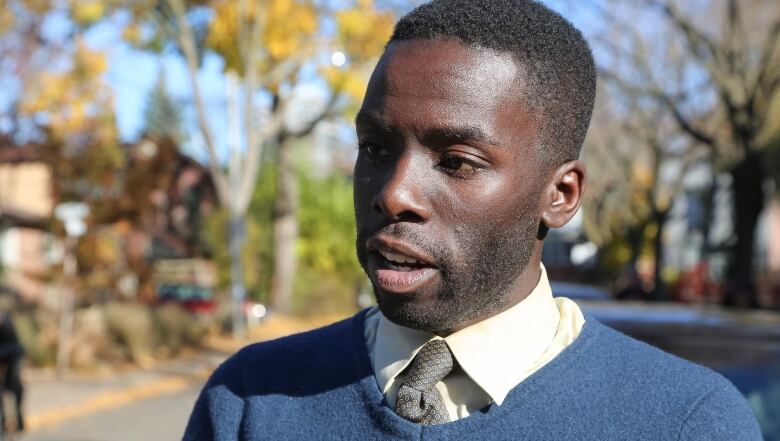Toronto police board approves rules for street checks, angering critics
New policy means data gathered in the past may be kept and accessed by police

The Toronto Police Services Board angered some critics Thursday as it approved a new set of policies about how officers interact with the public.
The new rules state police can't stop people at random, nor on the basis of race alone. However, police will maintain data they havegathered from stopping and questioning individuals in the past data critics wanted destroyed.
Critics of street checks which takeplace across the GTA say people fromracializedcommunities are more likely to be stopped than others.
"We've admitted that we did it wrong in some instances," Chief Mark Saunders told reporters, referring to the carding carried out in the past.
However, Saunders said that information may still hold the key to cracking cold cases and other major investigations. Under the new policy, he and other senior officers will have access to the data, though Saunders said investigators will be aware of the tremendous "social cost" of using that information.

Desmond Cole, an activist and journalist, said the new policy "enshrines" carding's place in the city. The information gleaned from the street checks, he said, should never have been obtained and therefore should never be used in the future.
Cole also questioned part of the new policythat allows police officers to use their discretion to stop and question people who appear suspicious means that will continue.
In Toronto, he said, "being black is suspicious."
Black Lives Matter Toronto, which has also blasted the practice, roundly criticized the new policy on Twitter and hinted more protests mightbe coming.
15. @JohnTory @TorontoPolice if you think were gonna accept this, you got another thing coming. #endCarding #destroythedata
—@BLM_TO'Criminal lens'
Lawyer KniaSingh addrssed the board and said allowing street checks means black men like him will continue to be looked at through a "criminal lens."
Liz Rice helped Singh drive home the double-standard.
She took the floor wearing a black jacket with the hood pulled up over her head. It's what she wears when she goes walking at night, she said, and she feels she definitelylooks "sketchy." Yet, Rice said, as a white woman she's never once been stopped by police.
The city's police force was forced to change its rules around street checks after the Ontario government stepped in to ban arbitrary stops earlier this year. Ontario's new rules also require officers to keep written records of their interactions with the public.
During stops, Toronto police now have to explain to individuals why they're being carded, as well as informing them that they're not required to provide identifying information, with some exceptions for certain situations.
Accessing data will leave digital fingerprint
Mayor John Tory wasn't present for the vote, but said he was satisfied with keeping data from the past so long as there are restrictions for accessing it.
Coun. Shelley Carroll, a member of the board,tried to assuage worries the data would be used frequently, saying accessing it would leave a digital fingerprint. The board, she said, would check back in three months to see how many so-called fingerprints have been left.
Too many, Carroll said, "and I dare say the board will act."
Saunders, meanwhile, said there would be a "very high water mark" when it comes to using the data. However, the chief declined to say how many of his officers will be able to use the information.












_(720p).jpg)


 OFFICIAL HD MUSIC VIDEO.jpg)
.jpg)



























































































